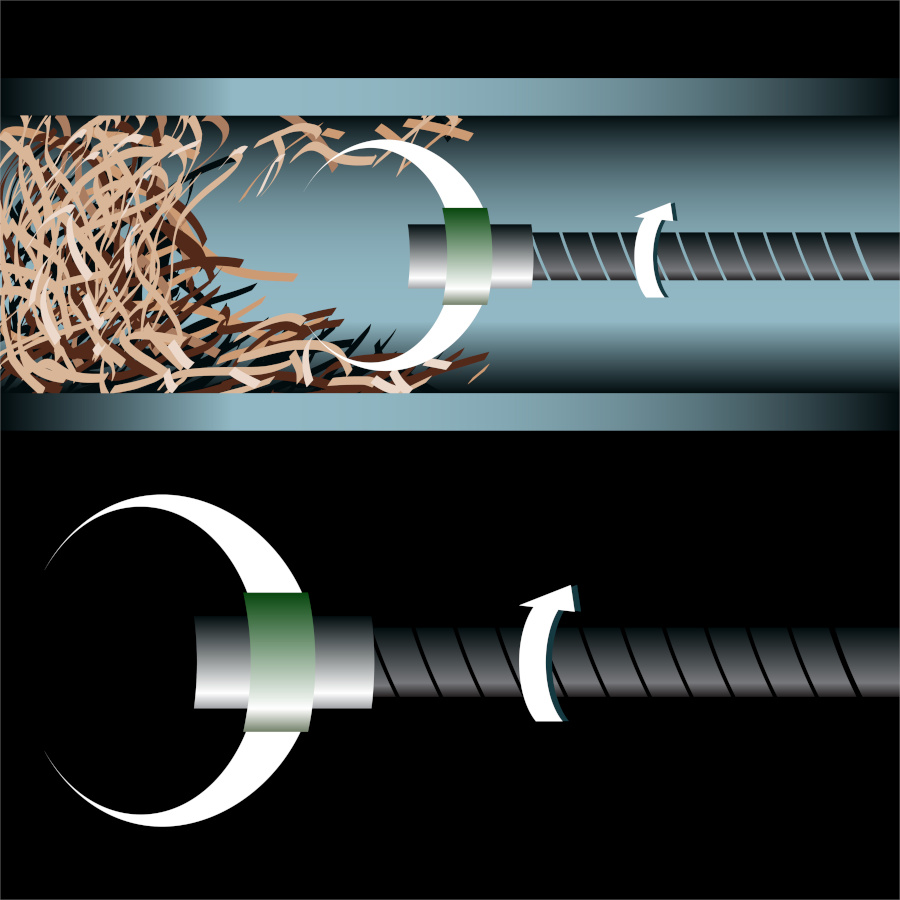We Fix Sewer Clogs
Homeowners don’t usually think about their sewer until the worst happens. That’s where we come in. Our plumbing professionals are here to unclog your sewer so you can get back to your daily routine. Whether you’re facing an emergency sewer line clog or just need preventative maintenance, we’ve got you covered.
We provide:
- Sewer & Drain Cleaning
- Emergency Sewer Rodding
- Hydro-Jetting
- Preventative Maintenance S
Customers consistently choose us for sewer and drain cleaning because of our affordability, honesty, and unwavering respect for their homes. Our plumbers clean up after themselves, and before we start rodding, we lay out tarps, slip on shoe covers, and gear up in personal protective equipment. We make sure that your living space stays spotless.
Before You Dig
Before you disrupt your property by trenching and digging up your sewer lines, give us an opportunity to showcase our expertise. Known for our ability to tackle even the most stubborn of clogs, our professional plumbers stand ready with solutions like hydro jetting when traditional rodding doesn’t cut it. At Green Tech Plumbing, we see each visit not as a chance to sell, but as a pivotal moment to demonstrate our dedication and skill in plumbing. So, before you commit to an expensive and invasive procedure, allow us the chance to provide you with a second opinion. With Green Tech Plumbing, your satisfaction is more than a priority—it’s a promise.

What Is Sewer Rodding?
Our People
Sewer rodding, commonly referred to as plumbing snaking, is a technique designed to clear drain obstructions and re-establish optimal water flow in your plumbing system. Our skilled plumbing experts employ flexible rods, connected end-to-end, to navigate through the system and eliminate any blockages. This versatile service addresses both minor and major obstructions, ranging from kitchen sinks to mainline sewers. Moreover, we are equipped with specialized rods and tools tailored for various rodding tasks.
Depending on the nature of the clog, a plumber will employ various tools tailored to the specific task at hand. For instance, if faced with a grease clog, a plumber would typically utilize a grease cutter to drill through the obstruction.
While rodding is gentle on pipes, drains, and sewers, it’s essential that the service be carried out by a qualified professional, especially when chemicals are involved. Undertaking this task without the requisite expertise could exacerbate the issue, potentially resulting in more severe problems than just a blocked drain.
How To Prevent Sewer Line Clogs
Maintaining a clog-free sewer line is not just about what goes down the drain, but also about mindful landscaping. Here are some measures to keep your sewer line flowing smoothly:
- Mind Your Trees: When landscaping, especially when planting large trees, opt for slower-growing varieties with less aggressive root systems. Always ensure you’re not planting close to the mainline.
- Be Careful What You Flush: Keep rags, paper towels, personal hygiene products, and other thick papers away from your toilets and drains. They’re notorious for causing backups.
- Steer Clear of Fats and Oils: Never pour grease, fats, or oils down your drains. They solidify upon cooling and can create stubborn blockages.
- Skip Harsh Drain Cleaners: Both chemical and natural drain cleaners often under-deliver on their promises and can be a needless expense. Moreover, they might cause harm to your pipes in the long run.
By adopting these practices, you can significantly reduce the risk of clogs and ensure the longevity of your sewer lines.
